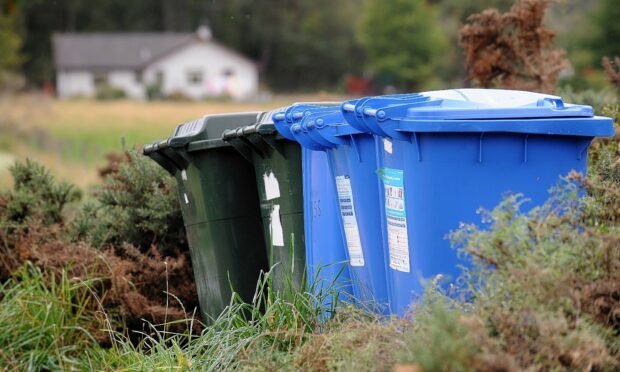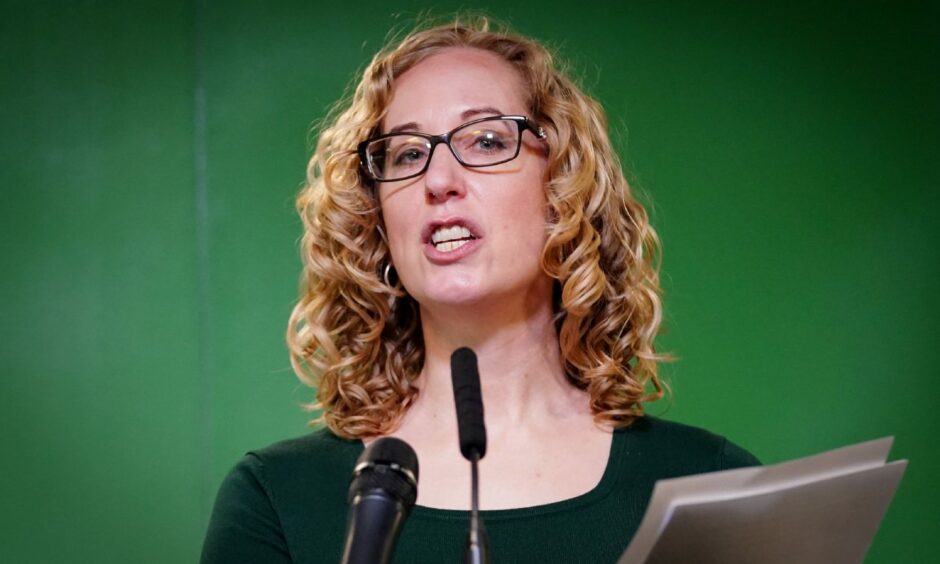Homes across the Highlands are to benefit from improved recycling services, making it easier for households to recycle and reduce emissions.
Highland Council will receive more than £6.5 million from the Scottish Government’s recycling improvement fund to modernise collections.
Improvements will include a “twin-stream recycling service” for all 130,000 Highland households, weekly food waste collections beyond Inverness and upgrades to waste facilities in Caithness and Portree to support improved collections.
Twin-stream means paper is collected separately from other dry goods.
Graham Mackenzie, chairman of Highland Council’s communities and place committee, said: “The funding will help Highland accelerate progress towards meeting national recycling targets by making it easier for residents to recycle.
“Increasing the amount of recyclable materials collected from households and reducing the amount of waste sent for disposal is critical in helping achieve our ambitions to reach net zero.
“We will invest in making modifications to our waste transfer station infrastructure to support the introduction of the new recycling services.”
What waste will new Highland bins take?
There will be three bins: the existing blue and green bin, but with different uses, and a general waste bin, which will be smaller.
The existing green general waste bin will be converted to collect mixed containers, plastic bottles, pots, tubs, trays, cans, tins, foil, cartons, and potentially soft plastics.
The existing blue bin currently used for mixed recycling will be converted to collect paper and card.
A new household waste bin will be in one of two sizes, either 140 litre or 180 litre.
Households in receipt of the weekly food waste recycling service will be provided with a new 140 litre general waste bin – while all other households will be provided with a new 180 litre general waste bin.
General waste wheelie bins are currently 240 litres.
Circular economy minister Lorna Slater said: “This investment will make sure that people across the Highlands receive a better recycling service and make it easier for households to manage their waste.
“The most recent warning from the UN’s climate scientists is stark – we must do everything to reduce our emissions.
“Increasing local recycling rates is an important part of this and this funding will help increase the pace of change.
She continued: “Food waste can be an even bigger contributor to climate change than plastic waste.
“That’s why we are supporting an expansion of local food waste collections, so that thousands more households in the Highlands can easily reduce the emissions from food scraps and leftovers.”
What difference will bins make?
Figures from Zero Waste Scotland show sending just a single kilogram of food waste to landfill produces the same carbon emissions as landfilling 25,000 500ml plastic bottles.
Highland Council will receive £6,550,300 to implement significant kerbside service improvements across all of Highland.
Projects supported through the fund include:
- The introduction of “twin-stream” recycling.
- Expansion of the weekly food waste recycling service.
- Redevelopment of two transfer stations.
The Scottish Government will soon be bringing forward a Circular Economy Bill.
This will establish the legislative framework to support Scotland’s transition to a zero waste and circular economy, increase reuse and recycling rates, and modernise our waste and recycling services.



Conversation